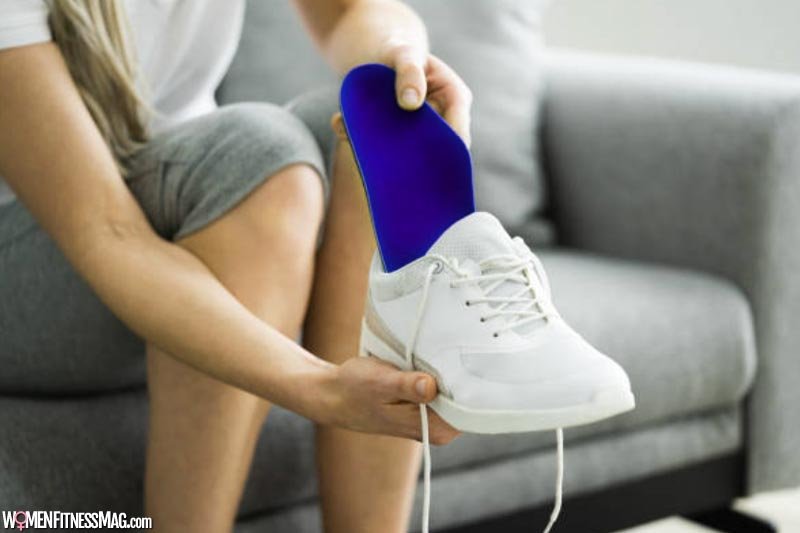How to Choose the Right Orthopedic Shoes for Your Specific Needs : Orthopedic shoes are specially designed shoes that provide support and comfort for people with foot and ankle problems. They are designed to alleviate pain and improve overall foot health. If you are in need of affordable orthopedic shoes, it is important to choose the right pair that suits your specific needs. In this article, we will discuss the factors to consider when selecting orthopedic shoes and provide some tips to help you make an informed decision.
-
Determine Your Foot Condition
The first step in choosing the right orthopedic shoes is to determine your specific foot condition. Different foot conditions require different types of support and cushioning. For example, if you have flat feet, you may need shoes with arch support, while if you have high arches, you may need shoes with extra cushioning. It is important to consult with a podiatrist or orthopedic specialist to identify your foot condition and get recommendations for the type of shoes that will best suit your needs.
-
Look for Proper Arch Support
One of the most important factors to consider when choosing orthopedic shoes is proper arch support. The arch is the curved part of the foot that helps distribute body weight and absorb shock while walking or running. If you have flat feet or fallen arches, you will need shoes with good arch support to help correct your foot alignment and reduce pain. Look for shoes with built-in arch support or shoes that allow you to insert custom orthotics for added support.
-
Consider Cushioning and Shock Absorption
Orthopedic shoes should provide adequate cushioning and shock absorption to protect your feet from impact and reduce strain on your joints. Look for shoes with cushioned insoles or midsoles that can absorb shock and provide comfort while walking or standing for long periods of time. Additionally, shoes with good cushioning can help prevent or alleviate conditions such as plantar fasciitis and arthritis.
-
Check for Ample Toe Room
It is important to choose orthopedic shoes that provide ample toe room. Tight or narrow shoes can cause discomfort, rubbing, and even deformities such as bunions or hammertoes. Look for shoes with a wide toe box that allows your toes to move freely and comfortably. This will help prevent foot pain and promote better foot health.
-
Consider the Material and Breathability
The material of the orthopedic shoes can greatly affect comfort and breathability. Look for shoes made from breathable materials such as leather or mesh. These materials allow air to circulate and prevent excessive sweating and odor. Avoid shoes made from synthetic materials that can trap moisture and cause discomfort.
-
Choose the Right Size and Width
Choosing the right size and width is crucial when selecting orthopedic shoes. Ill-fitting shoes can cause pain, blisters, and other foot problems. Measure your feet regularly and choose shoes that match your current foot measurements. Additionally, consider the width of the shoe. If you have wide feet or specific foot conditions such as bunions, look for shoes that come in wide or extra-wide widths to accommodate your feet comfortably.
-
Consider Your Lifestyle and Activities
When choosing orthopedic shoes, it is important to consider your lifestyle and the activities you engage in. If you are highly active and participate in sports or exercise regularly, you may need shoes with additional stability and support. On the other hand, if you have a more sedentary lifestyle or spend long hours on your feet at work, you may need shoes with extra cushioning and shock absorption.
-
Try Before You Buy
Before making a final decision, it is always recommended to try on the shoes and walk around in them. This will help you assess the fit, comfort, and support provided by the shoes. Pay attention to any areas of discomfort or pressure points. It is also a good idea to try on the shoes with the socks or orthotics you intend to wear with them to ensure a proper fit.
Conclusion
Choosing the right orthopedic shoes is essential for your foot health and overall comfort. By considering factors such as your specific foot condition, arch support, cushioning, toe room, material, size, width, lifestyle, and trying on the shoes before purchasing, you can make an informed decision and find the perfect pair of orthopedic shoes that meet your specific needs. Remember to consult with a healthcare professional if you have any concerns or questions regarding your foot health.
Related Videos about How to Choose the Right Orthopedic Shoes for Your Specific Needs :
How to Choose the Right Orthopedic Shoes for Your Specific Needs
how to choose the right shoes for your feet, what kind of shoes are best for your feet?, how to choose the right shoes for your feet online, how to choose the right shoes for an outfit, appropriate footwear in the workplace, which type of footwear will you use if you need to walk run on smooth surface write, which type of shoes are best for daily use, why do my legs hurt when i wear flat shoes,




